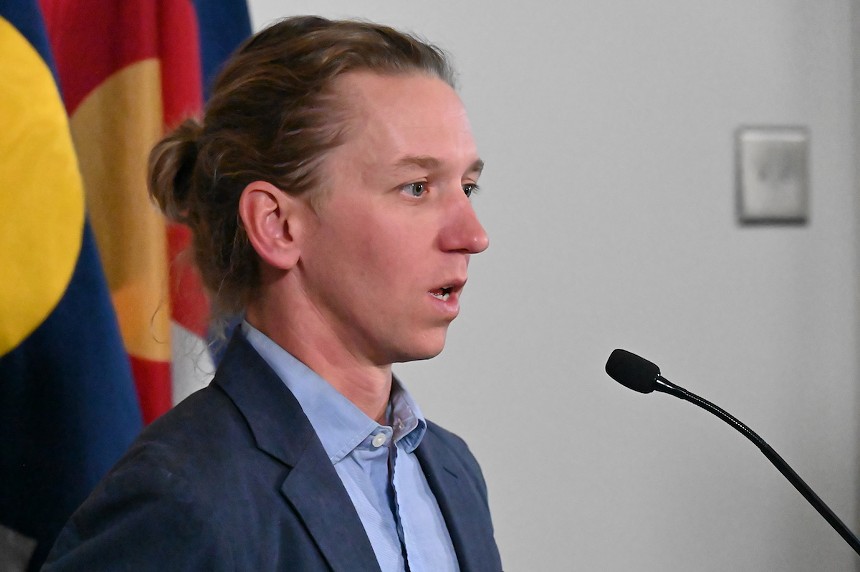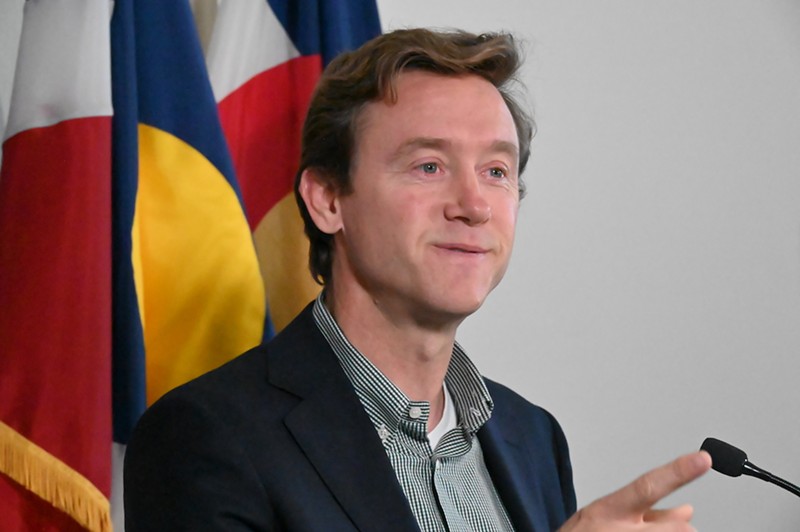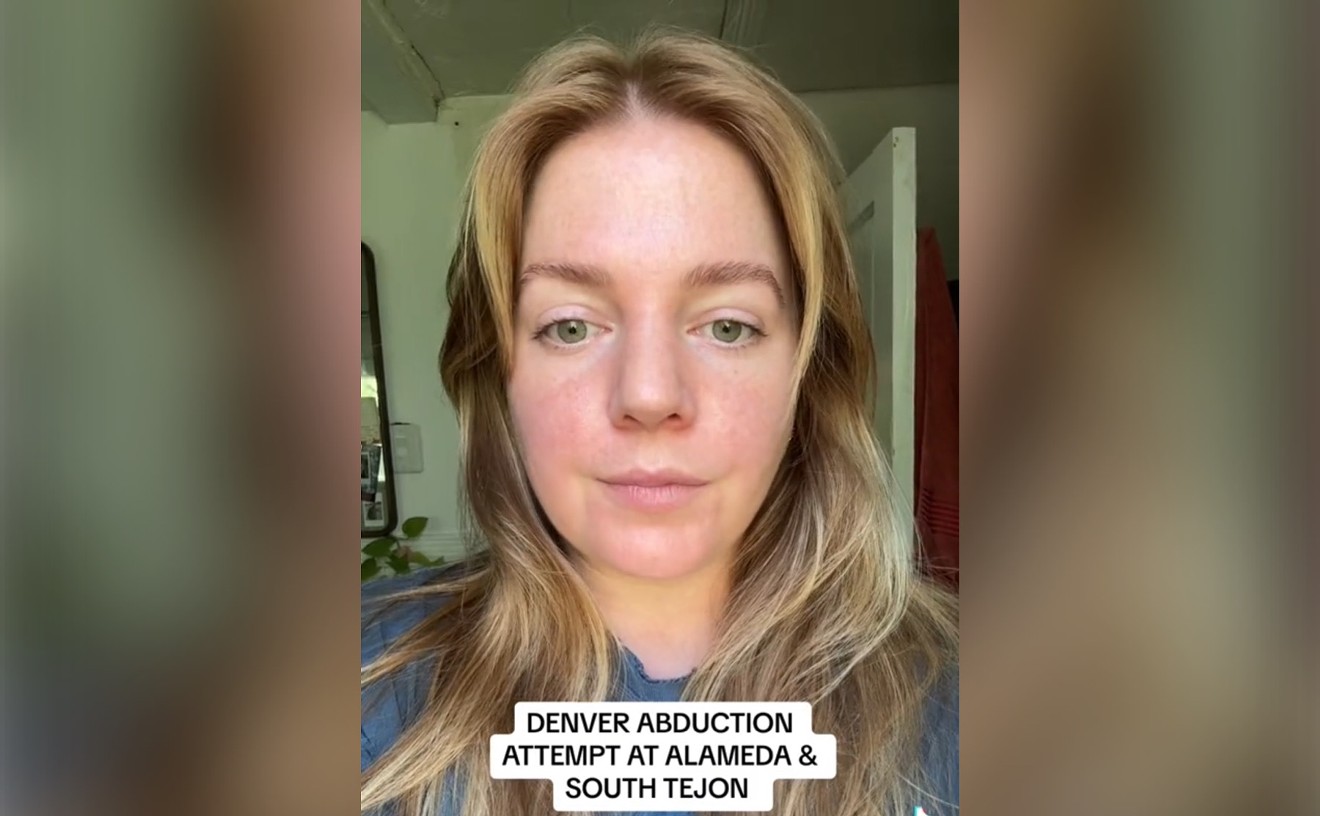The move gets Johnston one step closer to his public pledge of sheltering 1,000 individuals by the end of the year, and brings the housing portion of his attack plan more into focus.
According to Denver's new mayor, on August 11 his team started looking for nonprofit organizations willing to build, operate and provide supportive services — such as mental health or substance abuse treatment — for forty to a hundred people across a collection of seven to ten groupings of small housing units, or micro-communities, distributed throughout the city. Each one would provide bathrooms and trash pickup.
Nonprofits have carried out similar projects in recent years in the metro area; one example is the Beloved Community Village, which comprises eleven tiny homes near the intersection of Interstate 70 and Colorado Boulevard. Aurora currently has thirty pallet shelters measuring eight feet by eight feet that the city and nonprofits worked together to build and manage.
Several requests for proposals have been made available for nonprofits to outline how they'd bring city-funded micro-communities to Denver. The RFPs aimed at bringing in builders are separate from those for service providers, Johnston said. The RFPs for construction have yet to go out, but the city has at least one posted for operators and supportive services.
The mayor is looking for "smaller, local community-based nonprofits to step in and provide those services" and also "small construction-based, mom-and-pop organizations who want to be part of this" — though it's "an opportunity for larger-scale organizations to help" as well, he said.
Cole Chandler, senior adviser to Johnston on his homelessness resolution team, explained that while the city is issuing RFPs, he also expects to call on multiple nonprofits and service providers. "The RFP that is available is for service providers to bid on operating and providing wrap-around services in micro-communities," Chandler said. "We know it's going to take a whole ecosystem of service providers to really scale this effort related to micro-communities and provide key wrap-around services."
Any organization can bid. "That would include Denver-based organizations as well as organizations that are not currently working in the City and County of Denver," Chandler said.
Chandler and Johnston shied away from giving an estimate on how much the micro-communities project will cost. "Basically, we're asking organizations to bid and let us know what it takes to service these communities in the best way possible," Chandler said. "We haven't attached a particular dollar amount. We look to negotiate and contract for the services, but no particular amount has been assigned per individual or per community at this point."

Cole Chandler, the mayor's senior adviser on his homelessness resolution plan, tells reporters they'll serve forty to 100 people across seven to ten "micro-communities."
Bennito L. Kelty
"We've been doing a lot of work on tightening and refining the list of potential sites," Johnston added. "We've been working through all the city agencies from real estate to access to utilities to things we know are important."
The criteria for choosing the sites will come down to ones that can most easily offer access to utilities and don't have to be rezoned, according to city officials. Johnston is ultimately looking for sites that "have proximity to transit, that have proximity to food sources and that have some reasonable distance from schools." He also wants to see "equitable distribution around the city" in order to prevent cramming the homeless population into one area.
"We want to take what has been historically very concentrated services of large numbers of people in a small part of the city and actually decentralize those," Johnston explained. "So you have people in smaller communities spread out to different parts of the city."
One last thing Denver is looking for in nonprofits and community partners is services for "women or trans or non-binary" individuals, as well as "veterans, couples, people with service pets," among others, according to Johnston. "Those Denverites come with different kinds of needs and different kinds of support," he said. "And we have nonprofits with different kinds of expertise in that kind of support."
Across the various micro-communities, "the units may look different, the providers may look different and the community of Denverites look different," the mayor added. While he's unsure about the timeline, Johnston vows to have the first micro-community up and running before the end of the year.
The plan is consistent with how he laid out his homeless resolution plan during his campaign for mayor and also on July 25, when he announced the city would be relying on four types of housing to shelter 1,000 people by 2024: existing units, converted hotel rooms, converted commercial buildings and micro-communities. Johnston said the city would rely heavily on nonprofits to build those units and offer services there, which is exactly what it's doing.
The mayor noted on Wednesday that the city is following through on acquiring other properties that can offer multiple units for homeless individuals. He mentioned that the city finalized the purchase of the Stay Inn at 12033 East 38th Avenue with federal funds to convert its hotel rooms into 96 units of supportive housing — a $9 million plan that had been in the works since late last year.
Anyone who wants to ask Mayor Johnston about the micro-communities can do so in person at his ongoing town halls. The town hall schedule is posted online. The mayor said Wednesday that he sees "100 to 300 people each night" at the events.












